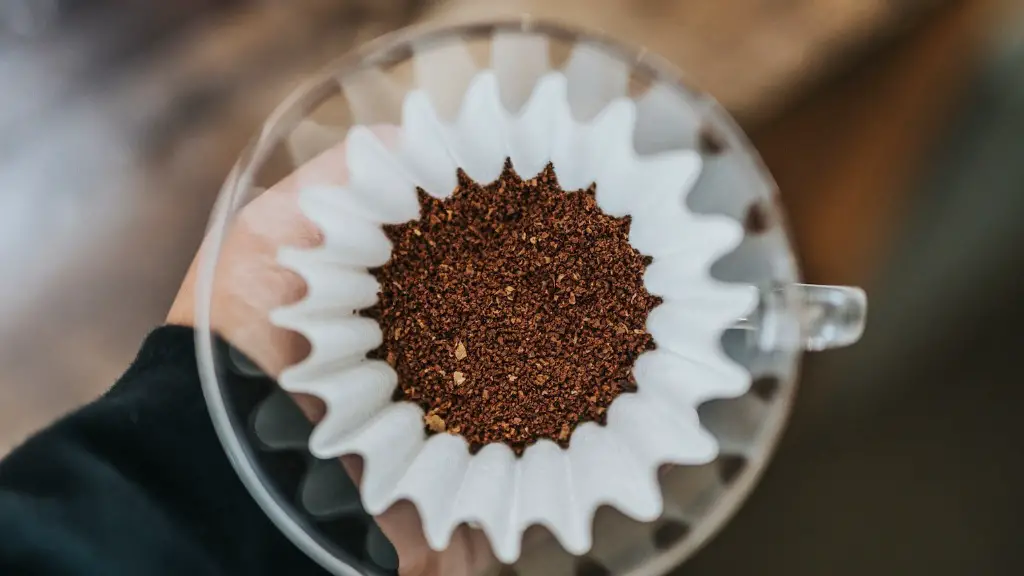Pros and Cons of Drinking Coffee Before Running
Running while energized is an important factor to consider, as it can significantly impact your performance. With such a wide variety of caffeine-containing beverages available, it’s easy to want to reach for a coffee ahead of your next run. But, is it really the right thing to do? Here, we discuss the pros and cons of drinking coffee before running to help you decide.
The Benefits
There are a few benefits to drinking coffee before your run. Primarily, the caffeine contained within coffee can help increase your energy levels and give you a much-needed boost to help you get through tougher runs. This is due to the action caffeine has on the central nervous system, which helps to produce alertness, reduce fatigue, and improve concentration.
Moreover, the antioxidants contained in coffee can increase the flow of oxygen to the muscles, allowing them to contract and relax better which can actually help reduce muscle soreness and fatigue. This, in turn, allows for better performance.
Finally, when taken in moderation and with the right timings, coffee can actually act as a mild diuretic. This means that it can help your body eliminate toxins and waste products more efficiently, allowing you to stay hydrated longer during your run.
Potential Drawbacks
While there are notable benefits to drinking coffee before a run, there are equally noteworthy drawbacks. The main problem is that when consumed too close to running, the caffeine can actually lead to dehydration and overheating. This is due to the diuretic effects of caffeine, as it can cause your body to lose more fluid than it takes in.
Moreover, although caffeine can help increase alertness, too much of a good thing can also cause jitters, anxiety, and an increased heart rate. This could negatively affect your performance, as it can lead to difficulty concentrating, muscle fatigue, restless legs, and even nausea.
Best Practices
Before considering drinking coffee before a run, it’s important to know the best practices for consumption. Firstly, it’s best to stick to a moderate amount of coffee, as too much can have negative effects. Ideally, you should consume no more than a cup or two – no more than 250 mg of caffeine – within two hours of your run.
Consuming coffee during your run is not recommended either, as it can really slow down your pace and affect your performance. It’s best to stick to water and energy drinks while running.
Foods to Avoid
When drinking coffee before running, it’s important to avoid those with high sugar content, such as Frappuccinos, flavored coffees, or those with added syrups. All these contain a lot of sugar which can lead to increased thirst, dehydration, and tiredness.
The Pros of Drinking Coffee Before Sports
Generally speaking, drinking coffee before engaging in sports does have its fair share of pros. Caffeine increases alertness and endurance levels, allowing your body to sustain levels of activity for longer. Plus, just the taste of coffee can be enough to inspire motivation and a mental boost.
Furthermore, researchers have found that coffee can enhance an athlete’s physical performance, especially when it comes to high-intensity and endurance sports. This impact is likely due to the stimulatory effects of caffeine on the central nervous system.
Moreover, some studies have even found that consuming coffee can increase the blood pressure of athletes while they’re exercising, thus improving their circulatory system and improving the delivery of oxygen and nutrients to the muscles.
The Cons of Drinking Coffee Before Sports
There are also some cons to consider when it comes to drinking coffee before engaging in sports. Firstly, excessive amounts of coffee can interfere with athletes’ ability to sleep and cause horrendous jitters and shakes. This can result in worse-than-usual performance outcomes, hurting athletes’ goals instead of helping them.
Another potential downside is that coffee can lead to an increased heart rate, which can have an adverse effect on athletes’ performance. Coffee can also increase the level of acidity in the stomach, thus leading to indigestion, heartburn, and nausea.
Timing and Dosing of Coffee Consumption
For athletes, timing and dosing are everything when it comes to coffee consumption. Firstly, it is important to wait at least two hours between consuming coffee and engaging in sports to reduce the negative effects.
Secondly, knowing how much coffee to consume is another important point to consider. Generally speaking, athletes should stick to no more than three cups of coffee per day, or 200-400 mg of caffeine per day. This will help to ensure maximum performance.
Alternatives Beverages for Optimal Performance
If you’re looking for alternative drinks to coffee for optimal exercise performance, there are numerous options available. Sports drinks are a great choice, as they contain a combination of glucose, electrolytes, and fluid to help deliver essential nutrients to the body.
Alternatively, water is also an excellent beverage for athletes. As it helps to regulate body temperature and helps to keep the body hydrated, it is essential to drink water before, during, and after exercise to ensure peak performance.
How to Get the Most Out of Caffeinated Drinks
Although the effects of caffeine vary between individuals, there are a few general tips and tricks to get the most out of these drinks. Firstly, athletes should take into consideration the timing of their coffee consumption, as caffeine takes 30-45 minutes to become active in the body.
Moreover, one key factor to consider is to never combine multiple caffeinated drinks. Too much caffeine can have the opposite effect, resulting in a wide range of potential problems for athletes. Finally, to maximize the effects of caffeine, it is crucial to remain hydrated and take regular breaks during activities.
Building a Pre-Workout Routine
Once athletes have identified the amount and type of beverages they are comfortable with, it’s important to create a consistent pre-workout routine to maximize their performance. This might include stretching, a light snack, drinking coffee or tea, and ensuring proper hydration.
Furthermore, physiologically, endurance athletes should aim to fuel their bodies before running with a mix of carbohydrates, proteins, and healthy fats. Aim to eat 1 to 2 hours before the start of your run, or within 30 minutes if you’re running an hour or less. This will help ensure optimal performance benefit.


